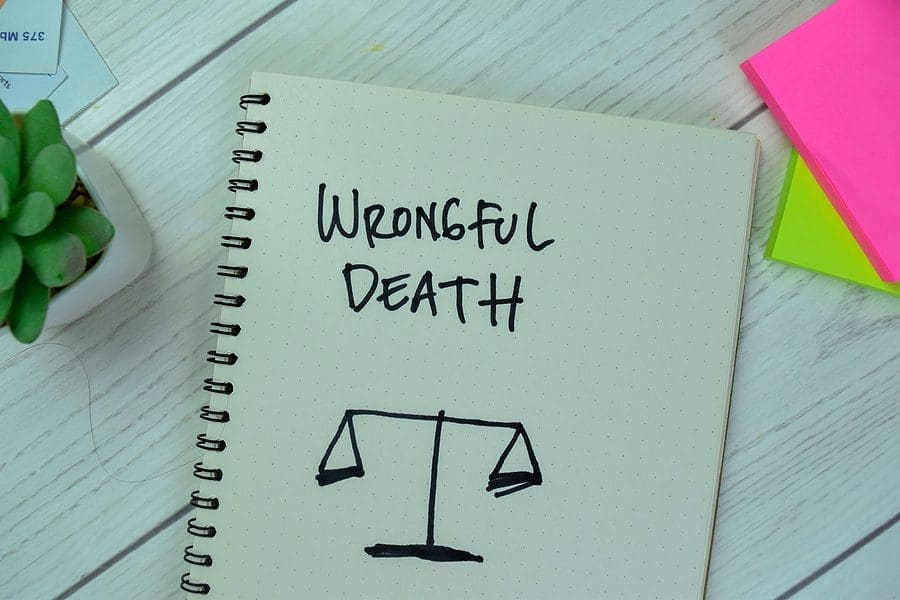JONES LAW GROUPYour Lawyers for Life! Personal Injury Law Firm in St. Petersburg

Personal injury accidents can result in multiple traumatic injuries, complicating the process of recovering compensation for damages. Summary Experiencing a traumatic incident is a harrowing ordeal, but when it results in multiple injuries, the impact on the victim and their loved ones can be profoundly distressing. At Jones Law Group, we understand the life-altering consequences […]
Call our personal injury law office directly at (727) 512-9847
At Jones Law Group in St. Petersburg, FL, we would like to hear from you. Contact us for a free personal injury case consultation.
Call our personal injury law office at (727) 512-9847
Get educated on the Florida's personal injury laws and more.
Personal injury accidents can result in multiple traumatic injuries, complicating the process of recovering compensation for damages.
Summary
Experiencing a traumatic incident is a harrowing ordeal, but when it results in multiple injuries, the impact on the victim and their loved ones can be profoundly distressing. At Jones Law Group, we understand the life-altering consequences that multiple injuries can bring.
Our team supports those affected by multiple traumatic injuries maneuver the process of compensation claims to support their recovery. Serious accidents rarely result in a single injury. More often, victims endure multiple injuries simultaneously.
Sometimes, additional complications emerge later, directly linked to the original incident. This cluster of injuries, often referred to by medical professionals as ‘polytrauma,’ can make the road to recovery particularly challenging.
If you or someone you care about has sustained multiple serious injuries due to an accident caused by another’s negligence, it’s crucial to seek the guidance of experienced catastrophic injury lawyers.
Get in touch with Jones Law Group to schedule a free consultation by calling (727) 571-1333 or submitting an online contact form today.
Polytrauma is a medical term used to describe a situation where an individual sustains injuries to multiple parts of the body. This condition often necessitates care from a variety of medical specialties including neurology for brain injuries, and orthopedics for bone injuries among others.
Recovery from polytrauma is usually a prolonged and challenging journey. It often involves an extensive mix of surgical procedures, rehabilitation, and psychological support.
The severity of these injuries typically means that the victims may be unable to work for an extended period. Often, they will require substantial therapeutic interventions to regain their previous level of functioning.
Polytrauma can encompass a wide range of injuries such as:
These types of catastrophic injuries are not only complex but can also result in long-term or even permanent impairments. Effective rehabilitation for polytrauma must be timely and comprehensive, often requiring ongoing acute care. Access to thorough case management is essential for facilitating a complete recovery.
Suffering multiple injuries can leave individuals and their families feeling uncertain about the future. The psychological impact can lead to anxiety and a loss of confidence, significantly altering one’s life. Work, social activities, and daily routines may become considerably more challenging.
Ensuring that victims receive immediate and ongoing support for multiple traumatic injuries, along with the compensation they deserve, is crucial for making the recovery process as thorough and effective as possible.
Numerous types of accidents can result in multiple traumatic injuries, often due to the negligence of a third party who owed you a reasonable duty of care. When such incidents occur, they can give rise to multiple traumatic injury compensation claims.
Common types of accidents that result in multiple injuries in Florida include, but are not limited to:
If you’ve sustained multiple traumatic injuries from any type of accident caused by someone else’s negligence, you may qualify for compensation.
When you suffer injuries in an accident that wasn’t your fault, you may qualify for compensation for financial losses, pain, and suffering you’ve endured. Unfortunately, serious accidents often result in multiple injuries, each varying in severity. Sometimes, the full extent of the injuries only becomes apparent much later.
A multiple injury claim refers to seeking compensation for various injuries or illnesses affecting different parts of the body, all resulting from the same incident.
For instance, a serious car accident might leave someone with a whiplash, leg injury, and cuts or bruises to the arms and head. Despite being different types of injuries, they are all linked to a single event and would be included in a multiple injury compensation claim.
Examples of serious multiple injuries sustained during an accident can include a combination of any of the following:
People with multiple injuries often require diverse treatment approaches, face prolonged recovery periods, and need consultations with various medical specialists. This not only affects their daily lives but also has a significant impact on their families and finances.
When calculating the value of a multiple injury claim, a Florida personal injury lawyer considers the comprehensive impact of all the injuries and their broader consequences. This ensures that the compensation reflects the full extent of the victim’s suffering and the ongoing challenges they face in their recovery journey.
When you’ve suffered multiple traumatic injuries due to an accident in Florida, you may qualify for various forms of compensation. These compensations are designed to cover the wide-ranging impacts of your injuries, from tangible financial losses to emotional distress.
The different types of damages you can claim can include economic, non-economic, and punitive damages.
Economic damages are meant to compensate you for the direct financial losses resulting from your injuries. This includes:
Non-economic damages address the intangible effects of your injuries, which can be just as debilitating as the physical ones. These damages include:
Punitive damages are awarded at the court’s discretion and are not intended to compensate for specific losses. Instead, they are designed to:
Understanding the types of compensation available can help ensure that you receive comprehensive support to aid in your recovery and adjustment.
The complexity of recovering from multiple injuries hinges on several factors, including the claimant’s overall health, age, and any pre-existing medical conditions. When a patient sustains multiple injuries, their treatment requirements often become intricate, necessitating careful coordination to optimize the chances of recovery.
This typically involves consultations with various specialist doctors, each focusing on different aspects of the patient’s injuries, and tailored recovery plans for each condition.
The path to recovery can be prolonged, significantly affecting not only the patient but also their family members. The injured individual may be unable to work, leading to a loss of income that the family may have relied upon.
Additionally, family members might need to reduce their working hours or leave their jobs entirely to provide necessary care and support, further impacting the household’s financial stability.
These factors are crucial when considering the valuation of a financial compensation claim, as they underscore the broader ramifications of multiple injuries on the patient’s life and their family’s well-being.
Dealing with a multiple injury compensation claim can be overwhelming, but a Florida personal injury lawyer from Jones Law Group can provide the expertise and support you need. Here’s how Jones Law Group can assist you throughout the process:
With their comprehensive support, a Jones Law Group Florida personal injury lawyer can significantly improve your chances of a successful multiple injury claim.
Jones Law Group is a dedicated team of experienced Florida personal injury lawyers. Our capable team regularly helps victims of multiple traumatic injuries secure compensation for their losses, pain, and suffering. We understand the complexities involved and are here to provide the legal support you need.
Take the first step towards recovery by calling us today at (727) 571-1333 or submitting your details through our online contact form to book a free case evaluation appointment. Let us help you navigate this challenging time with the expertise and care you deserve.

Whether the cause was a motorcycle accident, car wreck, or anything else, losing a loved one suddenly is the hardest thing anyone will ever have to endure. If you’ve suffered this devastating loss, the attorneys with Jones Law Group offer their deepest condolences. You might be looking for justice. You want to hold accountable those […]

When some people hear the term “road rash,” their first inclination is to assume this is a relatively minor injury. But any motorcyclist who’s ever had road rash due to an accident knows it’s anything but. Road rash can be excruciating, leading to potentially dangerous complications. The attorneys with the Jones Law Group can help […]

According to the Wall Street Journal, the deadliest place in the country to ride a bicycle is the same place we call home. This is alarming news. Florida has been found to be home to the top four ranking areas in bicycle deaths. The Tampa Bay metro area was found to be the most dangerous […]

As residents of the Tampa Bay area, we are lucky to live in a place envied by many, with beautiful beaches and perpetual vacation weather. With so many reasons to be outdoors, it’s no wonder there are so many pedestrians on our roadways, especially during tourist season. Being a pedestrian in Florida is more dangerous […]

Just about any sort of car accident can result in a catastrophic injury, of course. But when that accident results in a fire and an explosion, the damage can be horrific, and life-altering. These kinds of injuries can lead to not only a lifetime of pain and misery, but also incredibly expensive medical bills. The […]

Bias against cyclists is real. There’s a good chance you’re reading this because of that bias. The driver who hit you may have thought you should have been on the sidewalk, or you should have just moved out of their way. That motorist probably had no idea how defenseless riders are, but now you have […]
Speak with us before time runs out! In Florida, you have a limited window to file a personal injury case, so speak to an Attorney today.
Call our personal injury law office directly at (727) 512-9847
Jones Law Group is a dedicated personal injury lawyer in St. Petersburg, FL, serving the Tampa Bay area since 2006. Our experienced attorneys specialize in car accidents, slip and fall cases, employment law disputes, construction law issues, and overtime wage claims, fighting for maximum compensation on a contingency fee basis. Contact us for a free consultation to discuss your case.
Call our personal injury law office at (727) 512-9847
© Copyright 2006–2025 Jones Law Group Attorneys at Law. All rights reserved. Privacy Policy Terms of Use
Attorney Advertising.
The information on this website is for general information purposes only. Nothing on this site should be taken as legal advice for any individual case or situation. This information is not intended to create, and receipt or viewing does not constitute, an attorney-client relationship. Past results do not guarantee similar outcomes.
Are you injured or wronged and interested in a consultation? Fill out the form for a free consultation with us.